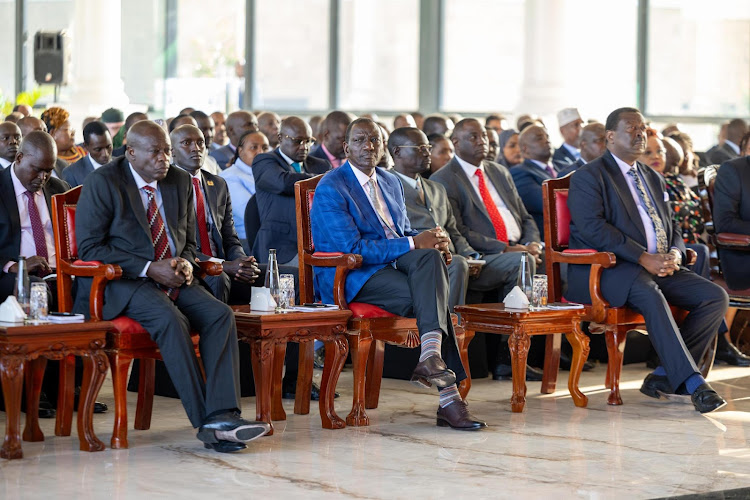As Kenyans took to the streets to protest, President William Ruto met with Kenya Kwanza lawmakers at State House to review the contentious Finance Bill 2024.
For weeks, several proposals in the bill had sparked nationwide concern due to their punitive nature, which were expected to further reduce workers' take-home pay and increase the cost of living.
At around 10:00 AM, the Head of State and his team emerged with 16 significant changes to the bill, widely seen as a relief across the nation.
Here are the 16 changes implemented:
-
Removal of 16% VAT on Bread: The Finance Committee agreed to remove the proposed VAT on bread following public outcry. Manufacturers had warned that this tax would increase the price of standard bread by Ksh10.
-
Removal of Excise Duty on Vegetable Oil: The proposal to impose a 25% excise duty on vegetable oils was scrapped. The Kenya Association of Manufacturers (KAM) had predicted this tax could spike cooking oil prices by 80% and affect other products like soap.
-
Removal of VAT on Sugar Cane Transportation: The proposed 16% VAT on transporting cane to sugar factories was removed, which would have otherwise increased sugar prices.
-
Removal of VAT on Financial Services and Forex Transactions: The initial proposal to increase taxation on financial services from 15% to 40%, which could have impacted forex transactions, was reversed.
-
Reversal of Increase in Mobile Money Transfer Charges: The proposed increase in excise duty from 15% to 20% on mobile money transfer charges was canceled.
-
Removal of Proposed Motor Vehicle Tax: The proposal requiring vehicle owners to pay 2.5% of their car's value annually, with a minimum of Ksh5,000 and a maximum of Ksh100,000, was scrapped.
-
Conversion of Housing Fund and Social Health Insurance Levies to Tax Deductibles: These levies will not attract income tax, effectively putting more money in employees' pockets.
-
Modification of Eco Levy: The Eco Levy will now only apply to imported finished products, not locally manufactured ones, easing concerns among local manufacturers.
-
Exemption of Certain Local Products from Eco Levy: Locally manufactured sanitary towels, diapers, phones, computers, tyres, and motorcycles will not be subject to the Eco Levy.
-
VAT Registration Threshold for Small Businesses: Businesses valued at less than Ksh8 million will not be required to apply for VAT registration, up from the previous threshold of Ksh5 million.
-
Exemption for Farmers and Small Businesses from eTIMS: Farmers and small businesses with a turnover of less than Ksh1 million will not need to register for the electronic Tax Invoice Management System.
-
Protection for Local Farmers: Excise duty on imported table eggs, onions, and potatoes was imposed to protect local farmers, reversing the proposal for a 16% VAT.
-
Excise Duty on Alcoholic Beverages Based on Alcohol Content: The excise duty will now be based on alcohol content rather than volume, encouraging the production of safer and cheaper alcohol.
-
Increase in Pension Contributions Exemption: The exemption for pension contributions was raised from Ksh20,000 to Ksh30,000.
-
Increase in Funds for Junior Secondary School Interns: Budget allocations for recruiting Junior Secondary School interns increased from Ksh13.4 billion to Ksh18 billion.
-
Funding for Hiring Teacher Interns: Additional funds were provided to hire 20,000 teacher interns next month, with a policy to transition these interns to permanent and pensionable terms.

